
Professor Ioannis Bakolis
Professor of Public Mental Health and Statistics
Biography
Ioannis Bakolis is Professor of Public Mental Health and Statistics and founding Deputy Director of the Centre for Mental Health Policy and Evaluation at the Institute of Psychiatry, Psychology & Neuroscience, King’s College London. Before joining King’s College, Ioannis had previously held research positions at Imperial College London (2013-2015; 2008-2012) and London School of Hygiene and Tropical Medicine (2012-2013). During that time, Ioannis completed a PhD in Biostatistics and Epidemiology at Imperial College London (2013) under the supervision of Professor Peter Burney and Professor Richard Hooper.
Research interests
Professor Ioannis Bakolis' programme of multidisciplinary research integrates statistics, epidemiology, biology, geography, and computer-science to explore how climate and environmental stressors and other forms of social adversity affect population mental and physical health over the life course. Some examples of Ioannis current work include exploring how exposure to air and noise pollution as well as neighbourhood deprivation affect mental disorders and co-morbid conditions; and how extreme heat affects depression, anxiety and psychosis. Ioannis is also a member of the core team of the Urban Mind project involving the development and use of smartphone technologies to monitor the impact of the surrounding physical and social environment on population mental health and wellbeing in real time. This programme of work demonstrated for the first time in the UK the negative impact of air pollution on the prevalence and severity of mental and neurological disorders and multiple long-term conditions.
Professor Bakolis' research interests also extend to the development and application of methods for rapid evaluation and implementation of mental health policies, interventions and services. Professor Bakolis is an international expert on the design of robust, quasi-experimental and hybrid studies and has a portfolio of methodological research tackling the challenges of causal inference interpretation in observational studies.
Professor Bakolis led and supported several UK and international COVID-19 studies to increase the understanding of the impact of COVID-19 on excess mortality, mental health service utilisation, self-harm rates, healthcare workforce and domestic violence incidences. Professor Bakolis' COVID-related work influenced governmental guidelines and led to prioritisation of service users with severe mental illness in the government’s vaccination programme.
Although not exclusively, much of Ioannis' work is conducted within large population-based surveys; birth cohorts and routinely collected information stemming from smartphone technologies and electronic health records.
- Air pollution and mental health over the life course
- Extreme heat and mental health
- Covid-19 response
- Natural experiments
- Hybrid studies
Teaching
- Module leader: ‘Advanced Statistical Methods in Psychiatric Epidemiology’, Global Mental Health Msc
Current course lectures:
- ‘Quasi-experimental designs’, Applied Statistics and Statistical Modelling Msc
- ‘Climate, environmental change and mental health, Neuroscience and Mental health Bsc
- ‘Evaluation of scale-up of complex population health interventions’, Global Mental Health Msc
- I currently supervise 3-4 MSc students per year for their final dissertations, and 4 full time PhD students. I am willing to accept new PhD students. Interested students should contact me with an idea of their project proposal in the first instance, with an indication of any potential funding support.
Expertise and public engagement
As an expert communicator and commentator Professor Bakolis' work is being regularly offered to popular media for dissemination to improve public understanding on climate, environmental change and mental health.
Research

Centre for Mental Health Policy and Evaluation
The Centre for Mental Health Policy and Evaluation is a leading international centre carrying out world-class research in the areas of evaluation and implementation of mental health initiatives. The aim of the centre is to positively influence mental health policy and practice.

Tackling Inequalities and Discrimination Experiences in health Services (TIDES)
TIDES study investigates how discrimination experienced by both patients and healthcare practitioners may generate and perpetuate inequalities in health service
Project status: Ongoing
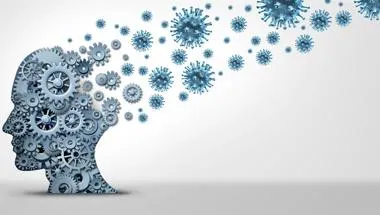
Health Inequities Research Group
Health Inequities Research Group is focused on delivering interdisciplinary research on inequities in mental health in marginalised communities and across health services with an emphasis on race at the intersection of other social identities.

SHAPER - Scaling-up Health Arts Programmes: Implementation and Effectiveness Research
SHAPER is a programme that will assess the effectiveness and implementation of 3 arts-in-health, Melodies for Mums with Postnatal Depression, Dance for Parkinson’s, Stroke Odysseys.

Causal Analysis & Evaluation
The Causal Modelling Group comprises statisticians and methodologists at King’s College London interested in drawing causal inferences from study data.
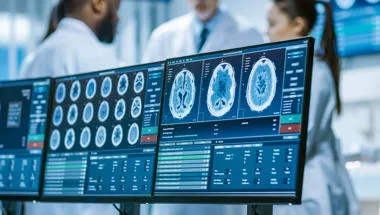
NIHR HealthTech Research Centre in Brain Health
National Institute for Health and Care Research (NIHR) HealthTech Research Centre, designed to accelerate the advancement of cutting-edge technology to better understand brain health and ageing and help people live healthier lives for longer.

COVID-19 Ethnic Inequalities in Mental health and Multimorbidities: COVE-IMM study
Informed by perspectives of people with lived experience, this study has explored how the COVID-19 pandemic has exacerbated ethnic health inequalities
Project status: Completed
News
Londoners to receive £1.5m National Lottery Community Fund boost for climate action and mental wellbeing
Thanks to National Lottery players, a new London Mental Health and Climate Coalition has received £1,499,958 over three years from The National Lottery...

Increased air pollution exposure during midlife may harm brain health as we age
A new study led by researchers from the Institute of Psychiatry, Psychology & Neuroscience (IoPPN) at King’s College London, has found that exposure to higher...

People with severe mental illness more than four times as likely to die from pneumonia compared to the general population
New research suggests that people with severe mental illness face an increased risk of death due to infectious disease.
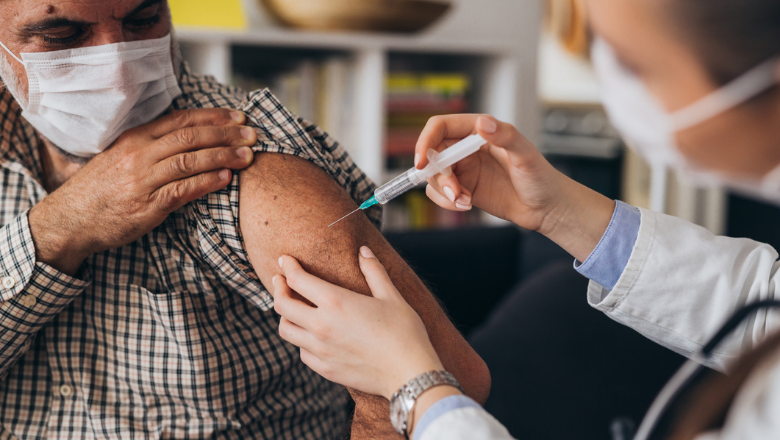
£1.68m Wellcome funding to explore impact of extreme heat on mental health of urban communities
Wellcome Climate Impacts Award will fund IoPPN-led research aimed at understanding the relationship between extreme heat and mental wellbeing, particularly...
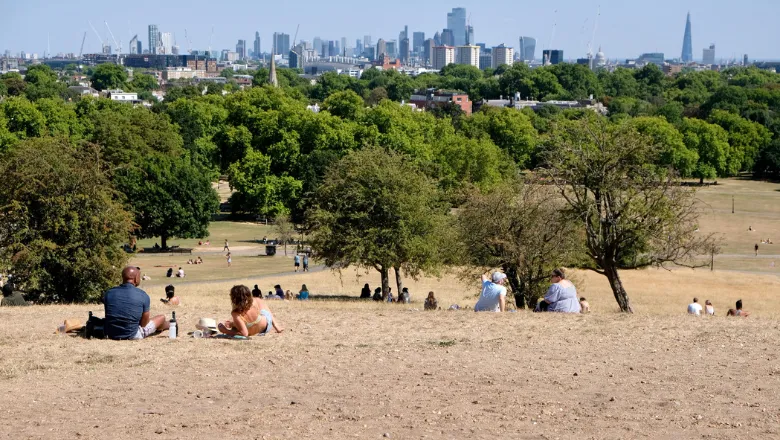
Exposure to air pollution is associated with increased use of psychiatric services in people with dementia
New research from the Institute of Psychiatry, Psychology & Neuroscience (IoPPN) at king's College London has found exposure to air pollution is associated...

Healthcare workers in England experience PTSD at twice the rate of the general public
New research led by the Institute of Psychiatry, Psychology & Neuroscience (IoPPN) at King’s College London in collaboration with the NIHR ARC North Thames at...

Adults living in areas with high air pollution are more likely to have multiple long-term health conditions
Exposure to traffic related air pollution is associated with an increased likelihood of having multiple long-term physical and mental health conditions,...

Excess deaths in people with mental health conditions increased during the COVID-19 pandemic
A study based on more than 160,000 patients has revealed greater number of deaths amongst those with mental health conditions and intellectual disabilities...
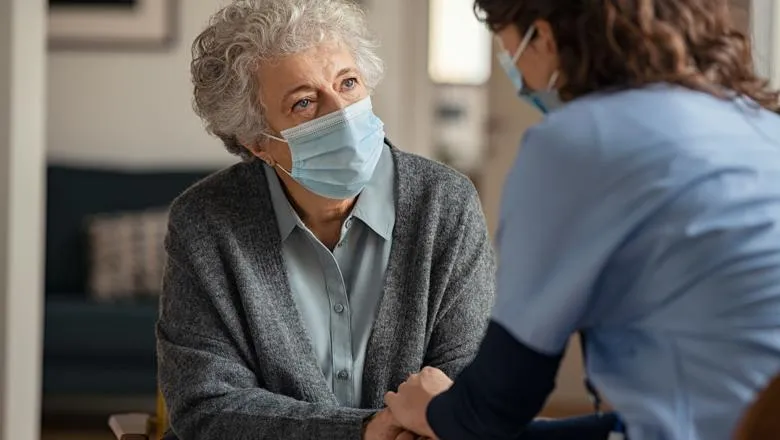
Exposure to air pollution linked with increased mental health service-use, new study finds
Exposure to traffic-related air pollution is associated with increased mental health service-use among people recently diagnosed with psychotic and mood...

Shifts to remote mental health services continued after lockdown, according to new study
The introduction and lifting of COVID-19 ‘lockdown’ policy in Spring 2020 was associated with significant changes in mortality and service delivery across...

Events

Our planet, our people: understanding the health impacts of climate change
In this session, we brought together a panel of world-renowned experts to put in focus the physical and mental health impacts of climate change.
Please note: this event has passed.
Research

Centre for Mental Health Policy and Evaluation
The Centre for Mental Health Policy and Evaluation is a leading international centre carrying out world-class research in the areas of evaluation and implementation of mental health initiatives. The aim of the centre is to positively influence mental health policy and practice.

Tackling Inequalities and Discrimination Experiences in health Services (TIDES)
TIDES study investigates how discrimination experienced by both patients and healthcare practitioners may generate and perpetuate inequalities in health service
Project status: Ongoing

Health Inequities Research Group
Health Inequities Research Group is focused on delivering interdisciplinary research on inequities in mental health in marginalised communities and across health services with an emphasis on race at the intersection of other social identities.

SHAPER - Scaling-up Health Arts Programmes: Implementation and Effectiveness Research
SHAPER is a programme that will assess the effectiveness and implementation of 3 arts-in-health, Melodies for Mums with Postnatal Depression, Dance for Parkinson’s, Stroke Odysseys.

Causal Analysis & Evaluation
The Causal Modelling Group comprises statisticians and methodologists at King’s College London interested in drawing causal inferences from study data.

NIHR HealthTech Research Centre in Brain Health
National Institute for Health and Care Research (NIHR) HealthTech Research Centre, designed to accelerate the advancement of cutting-edge technology to better understand brain health and ageing and help people live healthier lives for longer.

COVID-19 Ethnic Inequalities in Mental health and Multimorbidities: COVE-IMM study
Informed by perspectives of people with lived experience, this study has explored how the COVID-19 pandemic has exacerbated ethnic health inequalities
Project status: Completed
News
Londoners to receive £1.5m National Lottery Community Fund boost for climate action and mental wellbeing
Thanks to National Lottery players, a new London Mental Health and Climate Coalition has received £1,499,958 over three years from The National Lottery...

Increased air pollution exposure during midlife may harm brain health as we age
A new study led by researchers from the Institute of Psychiatry, Psychology & Neuroscience (IoPPN) at King’s College London, has found that exposure to higher...

People with severe mental illness more than four times as likely to die from pneumonia compared to the general population
New research suggests that people with severe mental illness face an increased risk of death due to infectious disease.

£1.68m Wellcome funding to explore impact of extreme heat on mental health of urban communities
Wellcome Climate Impacts Award will fund IoPPN-led research aimed at understanding the relationship between extreme heat and mental wellbeing, particularly...

Exposure to air pollution is associated with increased use of psychiatric services in people with dementia
New research from the Institute of Psychiatry, Psychology & Neuroscience (IoPPN) at king's College London has found exposure to air pollution is associated...

Healthcare workers in England experience PTSD at twice the rate of the general public
New research led by the Institute of Psychiatry, Psychology & Neuroscience (IoPPN) at King’s College London in collaboration with the NIHR ARC North Thames at...

Adults living in areas with high air pollution are more likely to have multiple long-term health conditions
Exposure to traffic related air pollution is associated with an increased likelihood of having multiple long-term physical and mental health conditions,...

Excess deaths in people with mental health conditions increased during the COVID-19 pandemic
A study based on more than 160,000 patients has revealed greater number of deaths amongst those with mental health conditions and intellectual disabilities...

Exposure to air pollution linked with increased mental health service-use, new study finds
Exposure to traffic-related air pollution is associated with increased mental health service-use among people recently diagnosed with psychotic and mood...

Shifts to remote mental health services continued after lockdown, according to new study
The introduction and lifting of COVID-19 ‘lockdown’ policy in Spring 2020 was associated with significant changes in mortality and service delivery across...

Events

Our planet, our people: understanding the health impacts of climate change
In this session, we brought together a panel of world-renowned experts to put in focus the physical and mental health impacts of climate change.
Please note: this event has passed.
